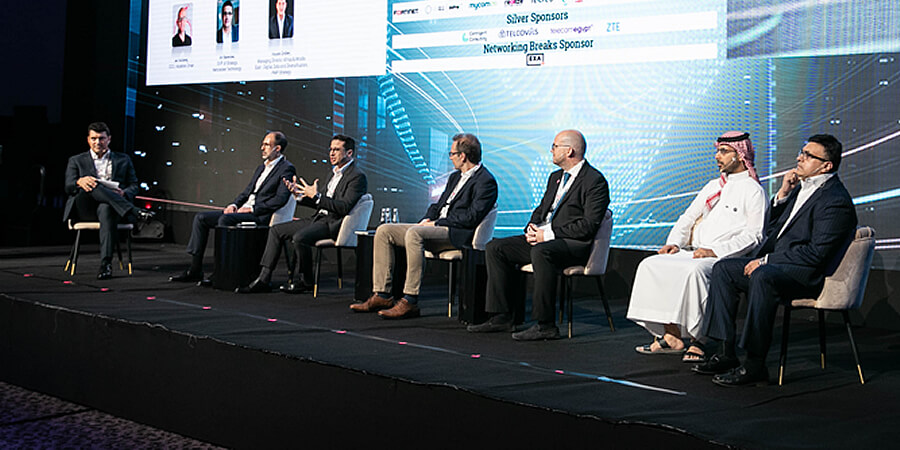In a recent panel discussion during the 17th edition of the Telecom Review Leaders’ Summit titled ‘Embracing the Future: Exploring the Role of Artificial Intelligence in Technology,’ industry leaders gathered to dissect the multifaceted realm of artificial intelligence (AI).
This engaging discourse covered an array of topics, ranging from the sudden surge in AI interest to the profound impact of advanced language models on various industries. The panelists shed light on AI's influence on the telecom sector, challenges and opportunities in integrating AI into networks and future trends poised to reshape the technological landscape.
The panel boasted a distinguished lineup of thought leaders:
- Mounir Ladki, President and CTO of MYCOM OSI
- Yahia Sefraoui - Chief Digital & Data Transformation Officer, inwi
- Dr. Ahmed Alsohaily - Group Head of Technology, Red Sea Global
- Jan Holzberg – CCO, Vodafone Oman
- Michal Patryk Debicki - VP of Solution Development, Reailize
- Ari Banerjee - SVP of Strategy, Netcracker Technology
Housni Zniber, Managing Director Africa & Middle East - Digital, Data and Diversification, PMP Strategy, facilitated the discussion, ensuring a comprehensive exploration of the panel topics.
The panel commenced with a discussion on the sudden surge in AI interest. Ladki highlighted the advancements in AI technologies, emphasizing their potential to transform industries. He said, “The growing availability of data, increased computing power and breakthroughs in machine learning algorithms were identified as key drivers behind AI's recent prominence.”
Impact of AI Language Models
The panelists delved into the influence of advanced AI language models, such as ChatGPT, on business-user interactions. Sefraoui provided insights into how AI is reshaping the digital and data landscape, particularly in the telecom sector. He highlighted the improvement in customer experiences and the enablement of more personalized interactions. For him, the potential of AI language models is crucial in revolutionizing customer service and enhancing user engagement.
The moderator explored AI's efficiency in prominent use cases within the telecom industry. Alsohaily shared valuable insights into how AI is utilized for network optimization, predictive maintenance and fraud detection.
In Addition, Holzberg provided a unique perspective on how AI is enhancing customer experiences and emphasized AI's role in delivering personalized offerings.
Challenges and Opportunities of AI
The challenges and opportunities associated with integrating AI into telecom networks were discussed in detail. Debicki underscored the need for robust data management and ethical considerations in AI implementation. Transparency, trust and explainability in AI systems were deemed crucial, along with continuous monitoring and adaptation.
Banerjee contributed intentional perspectives on how AI can be strategically deployed, touching on areas such as network automation and autonomous systems.
The panel offered a comprehensive exploration of AI's current landscape, its transformative potential and the intricate dynamics within the telecom sector. As AI continues to evolve, stakeholders must remain attuned to the challenges and opportunities it presents, ensuring a balanced and ethical integration into the ever-changing technological landscape. The insights shared by the esteemed panelists serve as a roadmap for navigating the exciting, yet complex, future of artificial intelligence in technology.











